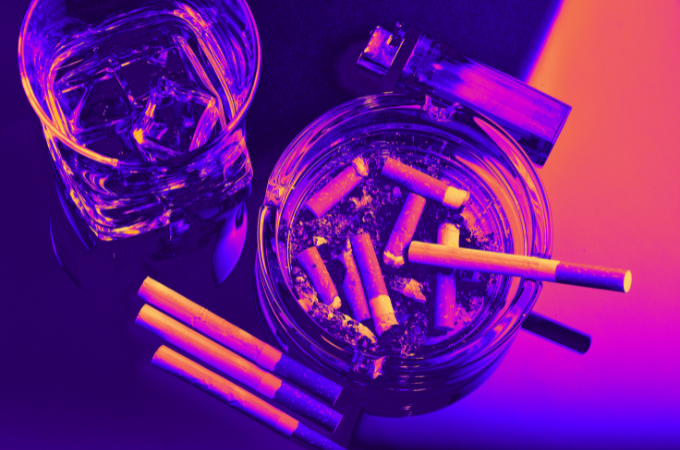
I am meeting my friend today. I can’t wait to see him. I rush out of the house when the taxi pulls up, nearly forgetting my sunglasses, and jump in the car, giddy as a bride on her wedding day. We haven’t seen each other in more than a year. I don’t care what anyone says. I’m still playing it safe, for as long this virus persists, and I’m still taking my mask everywhere with me.
I have missed him so.
My beautiful best friend.
The beautiful,
Talented,
Persecuted one.
We are such opposites. He is short, I am tall. He has lush, wavy hair, soft, symmetrical features and sparkling olive-green eyes. Me? You wouldn’t notice me at a bus stop. Unremarkable brown eyes, increasingly fat, a huge nose, reality-star big lips, and thinning hair.
Some people might say I am the Will to his Jack in the comedic best-friend duo from Will and Grace. He is brilliant. One of the most talented writers I know. A subversive, expansive brain. The Tolkien-reading type. Far too bright for his therapist.
“You are almost as smart as I am,” I used to joke. I stopped saying that when I read his virtuoso be-bop-style copy. He can be lyrical, even poetic, but at his best he is a word terrorist. In one of his more memorable TV columns, he constantly referred to the character Stephanie Forrester from The Bold and the Beautiful by the proper noun Saggy Tits. I call that graffiti, dear reader, not mere writing. Or, as a friend put it, “He is poes talented.”
We met in our early 20s when we were reporters at newspapers in the city. He was already a working journalist at the Cape Times, and I was an intern at the Sunday Times. Our first encounter was brief, nothing beyond introductions, as I recall. He happened to run into me and some of our mutual friends while we were sitting at a coffee shop in St George’s Mall. So urbane, our young Cape Flats selves. I was dressed in head-to-toe blue: jeans, t-shirt and tackies. I later received his review of my outfit via a friend: “Never one colour, unless it’s black.”
Of course, we’ve had our standoffs over the years. They have been known to be more bitter than a Russian invasion, usually because of some infringement on my part. Not praising his cooking effusively enough, perhaps, or picking the wrong side in an ideological war. I think the thing that keeps me coming back to him is his big-heartedness, and, of course, our shared history and fucking unmatchable laughter.
Part of me was hoping we would make love today. Not because I’m in love with him, or even attracted to him. No, these days have simply taught me that I need so badly to be touched by someone, but I am too afraid of being vulnerable with a stranger. Imagine. The two of us coupling. First of all, where would we go to commit the act? Secondly, who would do what to whom?
One of our running jokes is that he is a recovering top turned verse. I don’t even know what I would call myself… Somewhere on the asexual spectrum, perhaps… Someone who finds the physicality of men thrilling but can’t actually follow through with them. “Lovey, you are your own cock blocker,” he once told me. “You might as well be a lesbian.” His idea of big sisterly wisdom.
He might stop speaking to me again if he reads this. Maybe for good this time. If he gets mad, I will tell him his story is my story too. I have been begging him for years to tell it, but he refuses. So, I will tell it.
The afternoon begins with laughter, our lingua franca, our true dialect, despite what the language authorities say.
And of course, we Gayle. We call each other:
“Girl.”
“Meisie.”
“Moffie.”
“Sana.”
“Juffie.”
“Meire.”
“Vrou.”
Sometimes that one word is a whole sentence, expressing affection, incredulity, community. Aunties gossiping over the fence, with their hands cupping their mouths in glee or clutching their necks in dismay.
‘Moffie’ is my favourite honorific. It’s supposed to be the Afrikaans equivalent for faggot, but I find it far more intimate, more limp-wristed, which is essential to me. I always say, “Cape Town has moffies. The rest of the world has gays.” My friend can’t stand this kind of talk. He says I’m always trying to make a statement.
Maybe he is the outrageous Sula to my conversative Nel, actually. Then again, he is also wary of Toni Morrison. He views her as an extremist. She took him out when she told students not to settle for happiness.
“This is quite a lovely part of rural Cape Town,” he says as I sit down at the Spur restaurant where we arranged to meet. I chose the restaurant for its location right at the entrance to the mall, so we have smoking privileges. Aside from practical reasons, I have always loved this childhood haunt. Not for the grilled ribs and burgers, even though they are South African staples.
I simply love the unpretentious predictability of places like this. Even the cheesy American Wild West theme has a nostalgic charm, with its terracotta-red walls, and giant cactuses stencilled on the walls. I come to this outlet in Kuilsriver quite often and always find it comforting to slide into the upholstered booths and sit down at the yellow faux-wood tables. They have a steadying presence.
The mall is less than fifteen minutes from my home, but it took him more than twice as long to get here. He is disparaging, but it’s true – for anyone from his side of the peninsula, this is an outpost.
We order lunch from the formulaic franchise menu, in matching blues and reds, wrapped in plastic film. Nachos for him and a cheese and tomato sandwich for me. Amstel lager for me, Jameson on the rocks for him.
I start off by telling him about a book I have been reading, How Long has this Been Going on? It’s written by one of my favourite gay authors, Ethan Mordden, whose wit reminds me so much of him. I share some of the lines from the book with him and we cackle. It’s our way of saying: I can only share this with you.
He tells me about the 48-year-old white man he had an affair with who lives in a nearby millionaire suburb. The white man said he could never be in a serious relationship with him because he is coloured, but my friend forgave him because he has a lot of psychological baggage.
He listed a litany of childhood trauma, to do with homophobic bullying and the family’s apartheid ghosts. My friend even offered to guide him through his recent bipolar diagnosis, “as someone in a long-term relationship with psychiatry.”
This is why we will never get the land back.
Never one to be lenient towards white people, I say, “First of all, you are my main concern, not him. Secondly, are any of the traumas he suffered worse than what you have endured, or anyone in your family endured? Third, did any of those factors you mentioned give him the right to say that racially offensive thing to you?”
“No,” he acknowledged grudgingly, like a child forced to admit wrongdoing.
Thank goodness. That conversation could have gone in any direction. He gets very defensive about his white people, whom he somehow always ends up taking care of, whether it be their housekeeping or mental health.
Over the past year, we have stayed in touch over the phone, so we’re caught up on domestic issues: our overbearing mothers; our professional progress; and our love lives, rampant in his case, non-existent in mine.
We have both fallen on hard times. Both of us are in our 40s. Both living with our families. Both living in Leo-headed matriarchal households. Both of us have proven to be ungovernable in a work setting. I have just been fired from the first stable job I had in years, while he hasn’t had steady employment in about a decade.
He looks so good, healthy and glowing, and I tell him so repeatedly. It’s such a relief to see him in such fine shape, after all his ups and downs in recent years. Less than four months ago, he could barely get out of bed. Fortunately, a few doctor’s visits later, he was diagnosed and was soon on the road to recovery.
The rest of lunch is spent gabbing about inconsequential matters and sending each other into fits of laughter. We nearly lose it when he tries to sell me on a particular beauty product, which he swears will make me feel good on the outside as well as the inside. “Yes,” I replied. “Your inner cosmetics.” We nearly had to leave the restaurant.
As usual, he mocked me for randomly tossing around French phrases. My French, the petit peu I picked up during my time in Côte d’Ivoire, doesn’t go beyond, “The cat sat on the mat.” I do it deliberately because I know how it irks him. I go to the extent of learning new phrases to work into our conversations.
After about two hours, we are ready to move to another venue. First, I do some grocery shopping for my mother, then we order an Uber to go to a nearby bar called Barbaroozos. Just one notch above a dive. Just the kind of place we like, a shebeen in the city centre.
The snug interior is drenched in floor-to-ceiling black. The closest thing to a pop of colour is the deep-brown wood of the bar. A group of men are playing pool as we enter. Buddies. They look like they came to enjoy a quick game during their lunch break from a call centre.
We head to a corner table in the smoking section. Thankfully, the entire wall contains windows. It’s late afternoon and I smile as I settle into my seat, enjoying one of my favourite things about Cape Town. The light. Straight from heaven. Because we are surrounded by the coast, there is little to obstruct the sunlight. We have a clear path to the divine.
It’s simply gorgeous, and it makes you feel gorgeous, and young and special and rich, especially at the height of summer in January and February, when the sunset lasts for hours and it seems the days will go on forever.
It’s not that time of year yet. It’s late September, just gone Spring, but the Cape is already putting on a show for us, a preview of what is to come.
Here’s where things get serious. I had promised him earlier that I would reveal why I was fired when we reached the second phase of our afternoon tea.
I begin by telling him what it was like to be away from home at the start of the pandemic, not knowing if I would see my family alive again. I spent ten months holed up in my hotel room in Abidjan, with only the hotel staff for company, waiting for travel restrictions to be lifted.
I tell him about the sexual harassment I endured, the crippling workload, and the unfair labour practices. And, of course, as a South African/shop steward by birth, I could not keep quiet. When I turned to HR, I was told to take my abuser’s feelings into account. “You must remember that people from certain regions aren’t necessarily as tolerant as people from southern Africa,” the HR lady told me.
My response was: “Maybe you should stop hiring bigots, instead of asking the rest of us to be tolerant of them.” I wasn’t too surprised then when I was told a few months later that my contract would not be renewed.
“This period has changed me,” I tell him.
“How?” he asked. It was a dare. He needed me to be specific. To let my guard down. Only fair, I suppose, after all the years I have seen him bare his soul.
“It’s heightened my anxiety,” I say. “And I realised that I’ve been pushing through and pushing through, for the past twenty years, because of this working-class compulsion to prove myself and be gainfully employed, and finally I’ve had enough.”
I paused for a moment, then decided to just spit it out. I wanted him to finally know who I am. “I think it began when I was sexually assaulted when I was a child. I only recently discovered what an impact that had on me. It was the first time I lost control of my surroundings, and there was no one there to protect me. Whenever I feel that loss of control, it makes me feel incredibly vulnerable. But I’ve never really examined where that stems from.”
“I’m glad you finally opened up about that,” he said. “I know it’s not easy for you.”
He then told me about his own pandemic struggles. Even before it hit, he was already in a vulnerable position: unemployed and dependent on his landlady, whose household he managed in lieu of rent. That relationship turned ugly. I think they both had unrealistic expectations of the relationship, and in the end, each of them ended up bitterly resenting the other.
I remember his distraught phone calls to me while I was in Abidjan. I felt so helpless. There was little I could do beyond giving him cash to book himself into a bed and breakfast for a day or two to escape his unhealthy situation.
“You know what I’ve been thinking about a lot?” he says. “My days at the Cape Times. I miss that feeling of working with people like Sandile Dikeni, who guide you and make you a better writer. I miss the back and forth with editors.”
“I think what you’re missing is community,” I said. “You’ve spent so much time in isolation, writing all alone in your room, not being part of a team.”
He nods in agreement. Then surprises me by adding, “The one thing that motivated me at the Cape Times was proving those white people wrong.”
These days my need to see his story told is even more urgent, especially after I came across a British documentary on nurses and doctors who worked in HIV wards at the height of the AIDS pandemic. They started off quite staid but gradually became more emotional as the memories spilled out of them, along with the names of their patients who became their friends.
One or two of them clearly fell in love with the men in their care, in the purest way I have seen. I suppose you could call it elevated compassion. One nurse recalled the patient who bought her perfume, which she wore for years. Another nurse organised a brief ride on a motorbike for a patient.
Naturally, I couldn’t help but make a comparison between that era and this one. Back then, everyone knew someone who was HIV positive, and survival was not inevitable. At some point, 100,000 people were dying each day in South Africa because of the government’s refusal to roll out ARVs.
Some of these details had begun to escape me. I have forgotten the dead, I thought. How could I forget that season of death? It was everywhere and lasted for so many years. I remember it feeling like a curse. And yet again Africa bore the brunt. We thought we would never see the end of it. That’s why we need to record this history. And soon. We cannot forget. All those lives.
I mentioned the documentary to my friend and pleaded with him again. “Please. You have to tell your story.” He was quiet. We rarely speak about his HIV status and the trials he has been through. There was so much I wanted to say but couldn’t.
I wanted to say, “They have killed far too many of us, and they’re still trying to do so in Cameroon, and Nigeria, and Uganda, even right here at home. They want to erase us. Don’t let them. Please. Don’t let them.”
I wanted to say, “We need you.” And, “I am praying for you.”
After a minute or so of silence, we were back in the dwindling moment. With one word from him, our cackling and haranguing resumed.
“Moffie…”



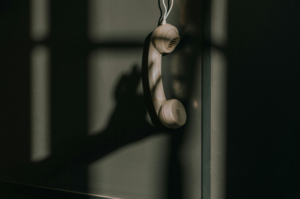
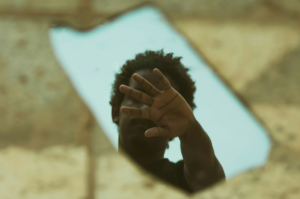
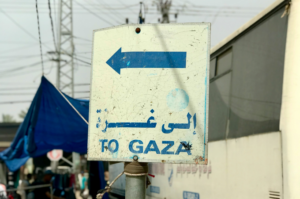
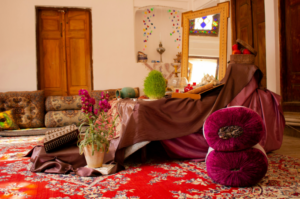
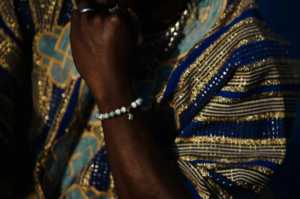
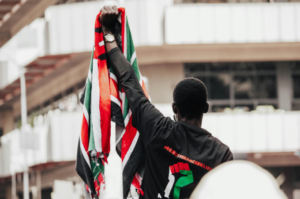

immie writes May 25, 2023 10:12
This story is so gorgeous, I can't find the right words to explain how beautiful n relatable it is to me but I'm so lucky I stumbled upon it cz I can't stop rereading it